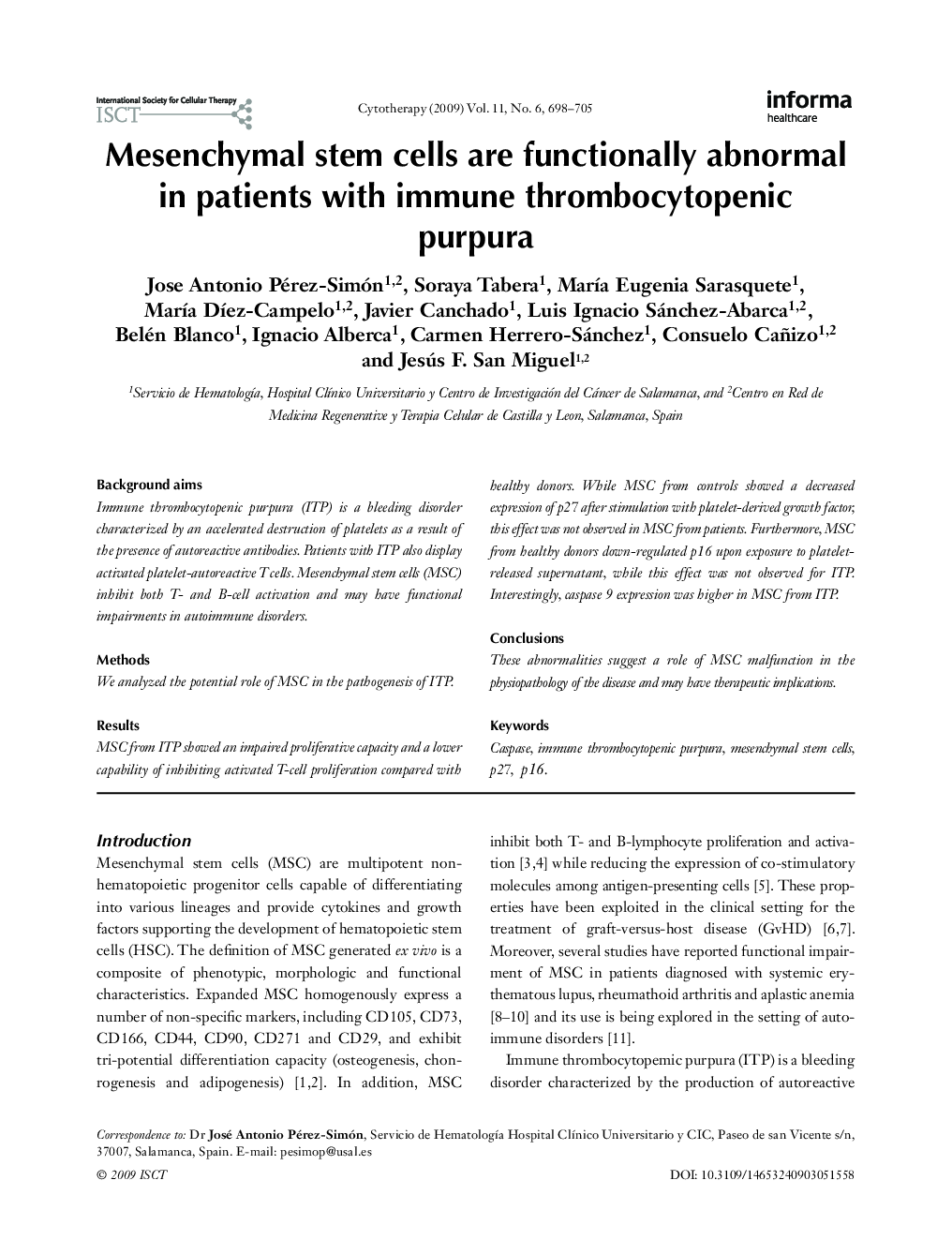| Article ID | Journal | Published Year | Pages | File Type |
|---|---|---|---|---|
| 2172139 | Cytotherapy | 2009 | 8 Pages |
Background aimsImmune thrombocytopenic purpura (ITP) is a bleeding disorder characterized by an accelerated destruction of platelets as a result of the presence of autoreactive antibodies. Patients with ITP also display activated platelet-autoreactive T cells. Mesenchymal stem cells (MSC) inhibit both T- and B-cell activation and may have functional impairments in autoimmune disorders.MethodsWe analyzed the potential role of MSC in the pathogenesis of ITP.ResultsMSC from ITP showed an impaired proliferative capacity and a lower capability of inhibiting activated T-cell proliferation compared with healthy donors. While MSC from controls showed a decreased expression of p27 after stimulation with platelet-derived growth factor, this effect was not observed in MSC from patients. Furthermore, MSC from healthy donors down-regulated p16 upon exposure to platelet-released supernatant, while this effect was not observed for ITP. Interestingly, caspase 9 expression was higher in MSC from ITP.ConclusionsThese abnormalities suggest a role of MSC malfunction in the physiopathology of the disease and may have therapeutic implications.
